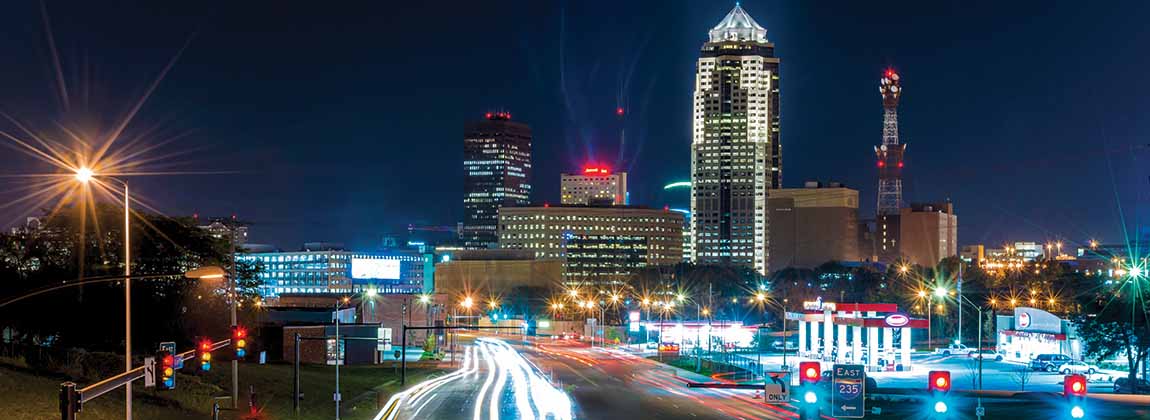Here's What to Know About the LOSST Vote on March 5

On March 5, cities in the Greater Des Moines (DSM) region will vote on a one cent Local Option Sales and Services Tax (LOSST). A “yes” vote for LOSST will help fund key needs in our community, providing property tax relief and funding for projects critical to the functionality of the voting cities. Voting cities include Des Moines, West Des Moines, Altoona, Pleasant Hill, Windsor Heights and Alleman.
I strongly encourage you to take action and vote on this issue that will impact your future and the future of the entire region. To help give you a full understanding of the issue before you hit the polls, read up on some of the key facts below.
Millions will be generated for DSM communities if the LOSST passes
Voting cities would stand to gain significant revenue through LOSST:
- The City of Des Moines is projected to generate $37 million annually.
- West Des Moines is estimated to generate $7 million annually.
- Altoona is estimated to generate $2 million annually.
- Pleasant Hill is estimated to generate $1.4 million annually.
- Windsor Heights is estimated to generate $850,000 annually.
A “yes” vote will help cities fund critical services and projects
In the City of Des Moines, a “yes” vote will take the burden off of property owners as more than one-third of revenue generated will come from out-of-town visitors. Half of this revenue will go towards property tax relief, which will help reduce city debt and preserve core city services. It is also important we find a long-term funding source for infrastructure improvements: Only 22% of Des Moines streets are rated in “good condition” by national standards. The money will also help address flooding concerns, fund critical investments in public safety and help the city pay for these improvements while taking on less debt.
All cities that are voting will benefit from an increase in funding that will boost their bottom line in serving citizens.
Communities have already determined where the money will go
All six cities that are voting have predetermined that revenue generated from the LOSST will go towards property tax relief, public safety, neighborhood development and other community initiatives. Specifically:
Des Moines
A total of 50% of revenue generated will go towards property tax relief and 50 percent will go towards improving streets, wastewater treatment, neighborhoods and public safety.
West Des Moines
Funds will be invested in additional law enforcement and firefighters as well as focus on transportation improvements and flood control projects. Funds will also be used to support the Five Waters Project, a 10-year park plan to link the city’s waterways, as well as revamping the public library.
Altoona
Altoona will allocate 50% of revenue to property tax relief and the remaining 50% for city projects, which could include streets, parks, sidewalks, public buildings, equipment and economic development programs.
Pleasant Hill
A total of 85% of the revenue will go toward property tax relief and the remaining 15% will go toward a new public safety facility or funding for parks, trails or utility projects.
Windsor Heights
Funding will go toward street improvements, equipment costs, building operations, library improvements, liability insurance and emergency management.
Alleman
A total of 50% will go back to homeowners in the form of property tax relief. The other 50% will go to City debt reduction, roads and other projects.
There is precedent for a LOSST throughout the state
A total of 97% of the communities in Iowa already have this tax. A “yes” vote will bring these Polk County communities in line with most of the rest of the state.
You can vote absentee
Absentee ballots may be requested through Polk County, or find more voting information.
The Greater Des Moines Partnership works with local, state and federal elected officials to advance public policy that generates economic growth, business prosperity and talent development in DSM. The Partnership is a nonpartisan organization. Learn more about The Partnership’s public policy work.
Christine Hensley
Christine Hensley is a retired Des Moines City Council Member. Hensely formerly worked for Bank of the West as the Regional Community and Government Affairs Officer. She has served on numerous boards throughout Greater Des Moines (DSM).